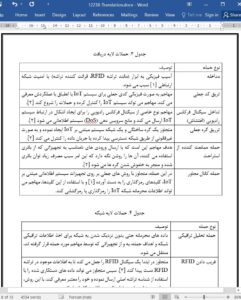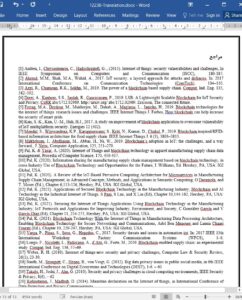Abstract
Internet of Things (IoT) aims to simplify the collection of the distributed data in a global manufacturing business, sharing and processing of information and knowledge across many collaborating partners using appropriate information system architecture. As with the IoT, convergence with blockchain technology that processes data, privacy and security-related issues, and data policies (e.g., regulatory compliance) may apply to data and software artefacts. Besides, blockchain technology could contribute to the more intelligent and flexible handling of transactional data through appropriate convergence with IoT technology in supporting data integration and processing. This paper examines this hybrid architecture’s privacy, security, and policy-related issues to appreciate the convergence and understand the integration of IoT and blockchain technology. This paper primarily identifies common trends focusing on relevant topics in blockchain-based IoT technology research and by highlighting the need to explore security issues further – for example, data privacy challenges in the manufacturing industry.
1. Introduction
The modern manufacturing industry and its supply chain represent a leap forward from more traditional automation to fully connected and flexible manufacturing operations. This flexible system can use a constant stream of data from connected operations and production systems to learn and adapt to new demands. It becomes a trend impacting business and economic growth; many networked machines are used increasingly to carry out manufacturing operations. These machines may carry out the same or different functions or tasks, and some machines rely heavily on the output from other machines (known as a ‘pipelined product line’). The connection between networked machines may also be configured dynamically to increase flexibility and adaptation to customized tasks. As a result, the smart synergy of networked machines is critical to improving the performance of modern manufacturing systems [10] [12].
6. Conclusion
The IoT-based system is a smart, more comprehensive network of interconnected objects, which through unique address schemes (e.g., EPC-based address), can cooperate and interact with their neighbours to collect data, process data, and convert it to daily business-related decisions. The data obtained from the IoT applications along manufacturing business processes can make operational decision-making much more comfortable. However, standalone IoT application systems face different security problems ranging from attacks on IoT devices to attacks on transit data. Furthermore, the tight integration of the digital world with the physical world using automated information systems has further created IoT systems' vulnerabilities.










